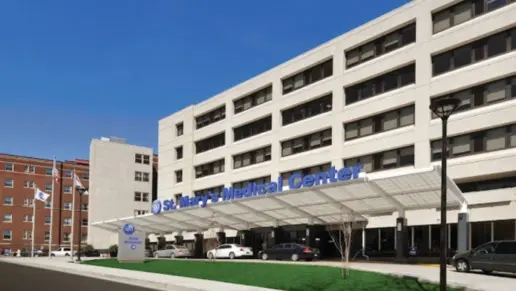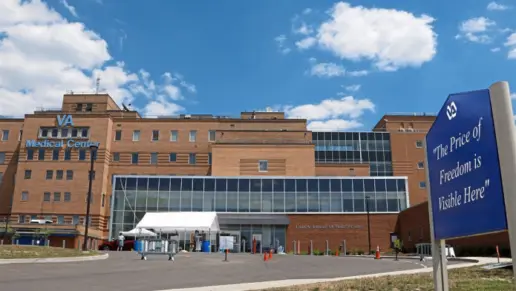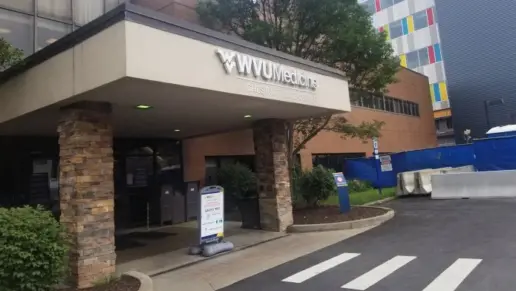They didn’t hesitate to put my family life at the front and center of my recovery, and seriously that made all the difference with other rehabs. Now, I have people back in my life who once would not trust me to be close to them
About Williamson Comprehensive Treatment Center
Williamson Comprehensive Treatment Center (CTC) is located in Williamson, West Virginia. This is a drug recovery clinic that serves men and women who are struggling with opioid dependence. They offer care in a safe and supportive environment. Treatments are offered in an outpatient setting. You’ll have access to medication assisted treatment (MAT), counseling, and other supportive services.
They accept policies from most major insurance providers. They also accept Medicaid, Medicare, and Veterans Benefits.
As a comprehensive and compassionate care clinic, you’ll find judgment-free and quality medical care here. When you first seek treatment here, you’ll undergo an initial evaluation with a team of medical professionals. They’ll determine an appropriate treatment plan for your recovery needs.
For many people navigating opioid recovery, MAT is an effective therapy. This treatment is offered here and uses FDA-approved medications including Suboxone, methadone, Vivitrol, and buprenorphine. These medications can help alleviate withdrawal symptoms. They can also help you manage ongoing cravings you’ll experience during recovery.
Supplementing your MAT program with counseling at Williamson CTC is important. That way, you can address the physical and psychological aspects of addiction. You’ll have access to both individual and group counseling sessions. You’ll work with experienced drug and addiction counselors who will help you build recovery skills for success. You’ll learn how to identify triggers and how to manage negative thoughts and emotions that may contribute to relapse.
They also provide a trauma-informed approach to care. This will allow you to speak with a professional about traumatic experiences that may have contributed to your substance use struggles.
Rehab Score
Accepted Insurance
Other Forms of Payment
Medicaid is a state based program that helps lower-income individuals and families pay for healthcare. Medicaid covers addiction treatment so those enrolled can use their coverage to pay for rehab. When a program accepts Medicaid the client often pays very little or nothing out of their own pocket.
Private insurance refers to any kind of healthcare coverage that isn't from the state or federal government. This includes individual and family plans offered by an employer or purchased from the Insurance Marketplace. Every plan will have different requirements and out of pocket costs so be sure to get the full details before you start treatment.
Self-pay involves paying for treatment out of your own pocket. You can use savings or credit, get a personal loan, or receive help from family and friends to fund your treatment. If you don't have insurance or your insurance plan doesn't cover a specific program, self-pay can help ensure you still get the care you need.
Military members, veterans, and eligible dependents have access to specific insurance programs that help them get the care they need. TRICARE and VA insurance can help you access low cost or no cost addiction and mental health treatment. Programs that accept military insurance often have targeted treatment focused on the unique challenges military members, veterans, and their families face.
Medicare is a federal program that provides health insurance for those 65 and older. It also serves people under 65 with chronic and disabling health challenges. To use Medicare for addiction treatment you need to find a program that accepts Medicare and is in network with your plan. Out of pocket costs and preauthorization requirements vary, so always check with your provider.
Financial aid can take many forms. Centers may have grants or scholarships available to clients who meet eligibility requirements. Programs that receive SAMHSA grants may have financial aid available for those who need treatment as well. Grants and scholarships can help you pai for treatment without having to repay.
Addiction Treatments
Levels of Care
Treatments
The goal of treatment for alcoholism is abstinence. Those with poor social support, poor motivation, or psychiatric disorders tend to relapse within a few years of treatment. For these people, success is measured by longer periods of abstinence, reduced use of alcohol, better health, and improved social functioning. Recovery and Maintenance are usually based on 12 step programs and AA meetings.
Drug addiction causes psychological and physical damage through repeated and uncontrollable use of substances. Drug rehab in West Virginia focuses on providing a full continuum of care, from detox to aftercare, and treatment can take place in outpatient or inpatient settings, based on your needs.
A combined mental health and substance abuse rehab has the staff and resources available to handle individuals with both mental health and substance abuse issues. It can be challenging to determine where a specific symptom stems from (a mental health issue or an issue related to substance abuse), so mental health and substance abuse professionals are helpful in detangling symptoms and keeping treatment on track.
Opioid rehabs specialize in supporting those recovering from opioid addiction. They treat those suffering from addiction to illegal opioids like heroin, as well as prescription drugs like oxycodone. These centers typically combine both physical as well as mental and emotional support to help stop addiction. Physical support often includes medical detox and subsequent medical support (including medication), and mental support includes in-depth therapy to address the underlying causes of addiction.
Programs


Clinical Services
Research clearly demonstrates that recovery is far more successful and sustainable when loved ones like family members participate in rehab and substance abuse treatment. Genetic factors may be at play when it comes to drug and alcohol addiction, as well as mental health issues. Family dynamics often play a critical role in addiction triggers, and if properly educated, family members can be a strong source of support when it comes to rehabilitation.
Group therapy involves multiple individuals coming together during one therapeutic session. Like individual therapy, group therapy sessions are counselor-led. Unlike individual therapy sessions, however, group therapy involves multiple participants working together towards a shared goal.
Southern West Virginia Comprehensive Treatment Centers believe that individual therapy is required in order to fully overcome an addiction to prescription medications, morphine, and heroin. By working with a counselor, individuals are able to receive the emotional help that they need while ensuring that they are following the guidelines set forth in their medication assisted treatment. Counselors are able to check-in with patients to discuss their progression within treatment, as well as address any issues that may take place during care.
Life skills trainings involve all the skills a person must have in order to function successfully in the world. These include time management, career guidance, money management, and effective communication. Truly successful addiction recovery is based on the ability to not only live substance-free, but to thrive. Life skills teaches the practical necessities of functioning in society, which sets clients up for success in life, and therefore sobriety.
Through cognitive behavioral therapy in West Virginia, therapists encourage clients to identify negative thoughts, gain control over them, and develop ways to change their behaviors. This can be an effective way to break the cycle of addiction and overcome substance use disorder.
Amenities
-
Private Setting
Accreditations

The National Association of Addiction Treatment Providers (NAATP) is a professional association that represents organizations in the field of addiction services. Founded in 1978, NAATP's mission is to advance addiction services and ensure that high-quality addiction treatment is available and accessible.
NAATP Member: Yes
Member ID: 1661

The Commission on Accreditation of Rehabilitation Facilities (CARF) is a non-profit organization that specifically accredits rehab organizations. Founded in 1966, CARF's, mission is to help service providers like rehab facilities maintain high standards of care.
CARF Accreditation: Yes

State Licenses are permits issued by government agencies that allow rehab organizations to conduct business legally within a certain geographical area. Typically, the kind of program a rehab facility offers, along with its physical location, determines which licenses are required to operate legally.
State License: West Virginia

The Substance Abuse and Mental Health Services Administration (SAMHSA) is a branch of the U.S. Department of Health and Human Services. Established in 1992 by congress, SAMHSA's mission is to reduce the impact of substance abuse and mental illness on American's communities.
SAMHSA Listed: Yes
Contact Information
1609 West Third Avenue
Williamson WV, 25661






